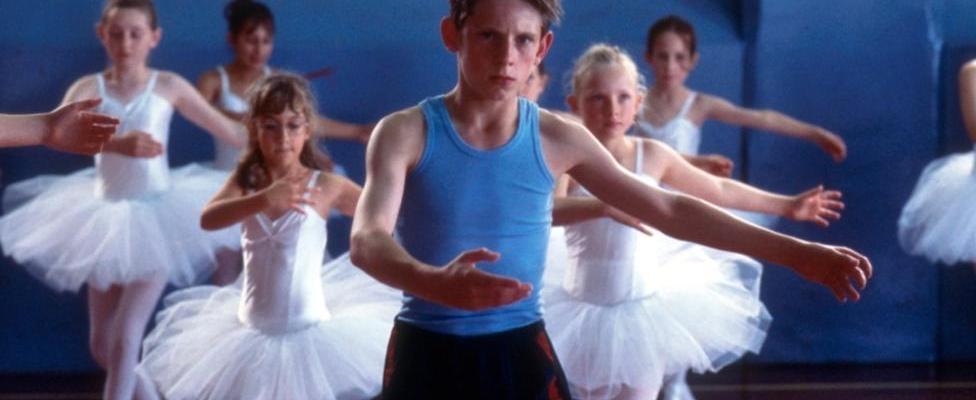Released 15 years ago today, September 29, 2000, Billy Elliot has the movie-magic ability to charm audiences from their eyes, to their hearts, to their own tapping toes. Set in Durham, England against the historical backdrop of its 1984 coal miner’s strike, the film tells the story of an 11-year-old boy who dreams of becoming a dancer. The film’s box-office success was driven largely by word of mouth [1], which is no small testament to its lasting emotional power and innately human appeal of triumphant self-exploration.
Billy Elliot’s set design is immediately striking. Peppered with swan imagery and wearied evidence of revulsion for police authority, the film’s art direction plays a stunning role in its storytelling. The first scene highlights Billy’s psychedelic bedroom wallpaper, mirroring his vibrant spirit and contrasting against the bleak rigidity of his small English town. It’s only fitting that the glam-rock riffs and vocals of T. Rex should accompany this opening and comprise the soundtrack. Marc Bolan’s raw energy and punk propensities bolster Billy’s character growth and speak to the political climate of the miner’s strike, while his personal history with gender bending suggests an element of inspiration behind the gay character of Michael—Billy’s cross-dressing best friend.
The film’s references to Swan Lake serves to further support freedom of artistic expression. Composed by Tchaikovsky, who was forced to keep his own homosexuality private throughout his career [2], Swan Lake weaves its story around the cursed Odette. Permitted to transform from a swan into her true human form at night, Odette feels alive for only a few dancing hours each day. As Billy (played by a bright and breathtakingly natural, Jamie Bell) comes alive through electric choreography, as his teacher (Julie Walters) compensates for an unfulfilled marriage with weekly dance instruction, a timid Michael finds himself through women’s fashion and makeup worn in secret. Art enhances lives, illustrated most literally when Billy’s grief-stricken father (Gary Lewis) resorts to using a destroyed piano as firewood on Christmas Day.
Unafraid to explore complicated family and gender roles amidst high-spirited dance sequences and earnest grins, Billy Elliot succeeds in crafting sharp modern commentary, while upholding a classic cinematic ambition to offer audiences a story—and a song—to smile about.
[2]: Poznanskij, Aleksandr. Tchaikovsky through Others’ Eyes. Bloomington: Indiana U, 1999. 78.

